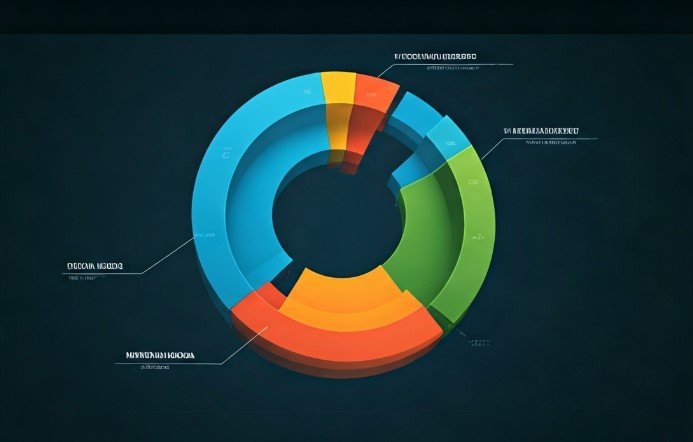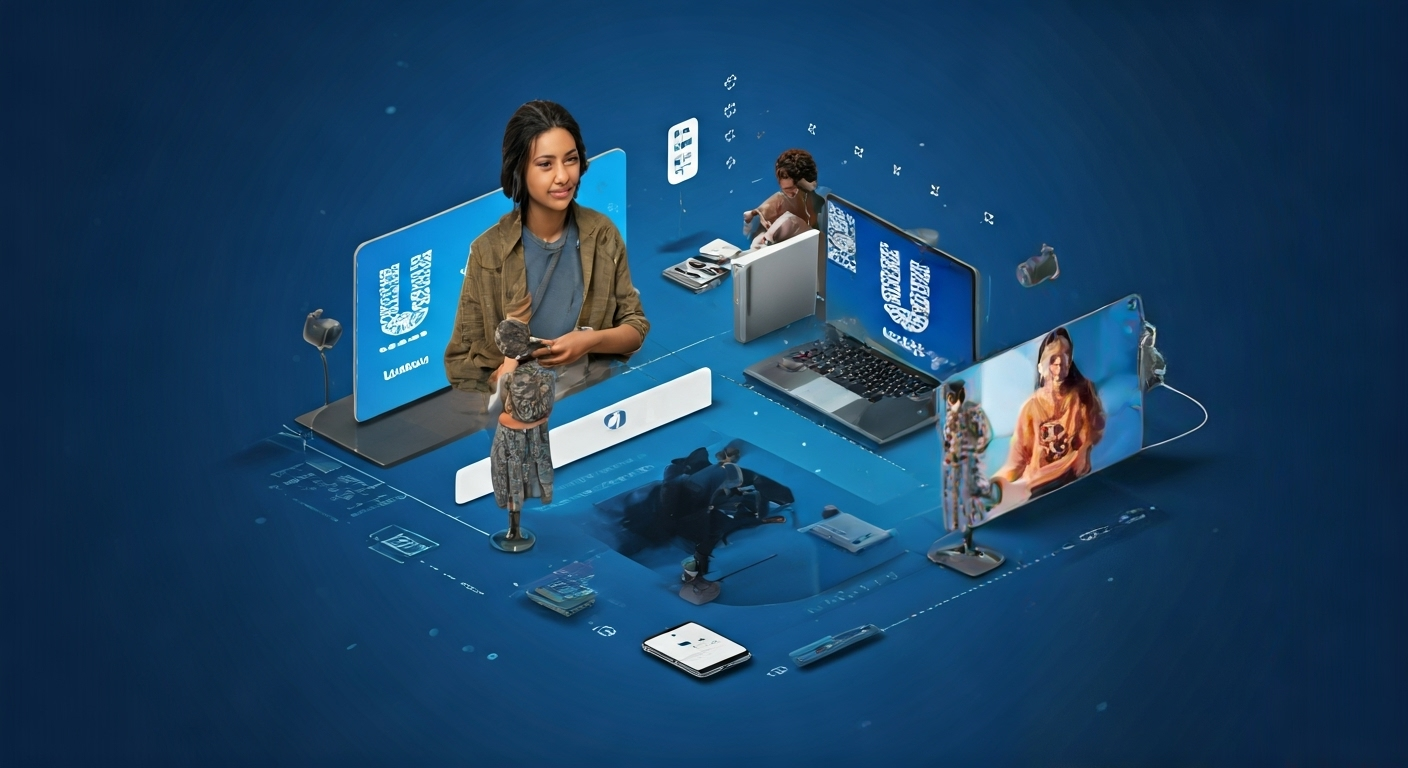August 11, 2025
Unilever Influencer Marketing Strategy 2025: Key Insights

Greg Kopyltsov
Founder
unilever influencer marketing strategy 2025


In an evolving digital landscape, the intersection of influencer marketing and corporate strategy is becoming increasingly significant. Unilever's approach for 2025 represents a paradigm shift, aiming to leverage social platforms and creator collaborations as pivotal components of its marketing strategy. Under the leadership of CEO Fernando Fernandez, the focus will be on cultivating authentic relationships with content creators, prioritizing direct engagement with consumers across various demographics. This transformation seeks to position Unilever at the forefront of innovation within the influencer marketing realm.

Cultivating an influencer-first vision signifies a transformative shift for Unilever as the company leans heavily into creator marketing across social media channels. Under the guidance of CEO Fernando Fernandez, the strategy prioritizes authentic endorsements from content creators, thereby enhancing brand awareness and consumer engagement. Emphasizing personal care products like Dove, this approach aims to resonate with diverse demographics, particularly Gen Z and millennial consumers, driving both advocacy and premiumisation in markets, including Europe and Latin America, well into 2025.
A pivot towards authenticity and relatability marks a significant transformation in the 2025 marketing approach for Unilever. By leveraging creator marketing and engaging diverse social platforms, the strategy seeks to resonate with Gen Z and millennial audiences, aligning brand values with real-world advocacy. This move emphasizes personalized consumer engagement over traditional corporate messaging, reflecting evolving purchase decisions across different markets. Enhanced analytics and a focus on community-driven interactions will redefine brand awareness, fostering loyalty through more meaningful connections with followers.
Shifts in Unilever's influencer marketing strategy for 2025 emphasize a departure from conventional methods. Under CEO Fernando Fernandez, the focus is now on authenticity and creator collaboration, moving beyond traditional corporate messaging. Enhanced analytics will drive decisions, prioritizing measurable outcomes that resonate with Gen Z across social media channels like Instagram and TikTok. Additionally, the strategy acknowledges diverse markets, tailoring approaches for various demographics, which contrasts sharply with last year’s broader, less targeted efforts.
Strategic budget allocation is essential for Unilever's influencer marketing direction in 2025. Prioritizing influencers and social media channels, significant portions of the budget will be directed towards platforms like TikTok, Instagram, and YouTube. This shift underscores a commitment to creator marketing, focusing on engagement metrics and the impact of social channels on purchase decisions. By analyzing data and leveraging analytics, Unilever aims to optimize its investments, ensuring a resonant connection with diverse markets while maximizing brand awareness and authentic consumer advocacy.
Significant investment shifts are evident in Unilever's 2025 ad spend, with a pronounced focus on social media channels. A substantial portion of the budget will target influencer partnerships on platforms like Instagram and TikTok, reflecting the CEO Fernando Fernandez's commitment to creator marketing. This allocation underscores a departure from traditional advertising methods, leveraging analytics to enhance measurement and impact. By prioritizing authentic content engagement over conventional corporate messaging, Unilever aims to resonate with diverse markets and elevate brand awareness among consumers.
Shifting focus towards influencer marketing represents a departure from traditional advertising investments. While conventional methods often rely on broad reach through television and print, the 2025 strategy leverages social channels to foster deeper brand-consumer connections. The use of creator marketing prioritizes authenticity and relatability, engaging audiences in a more personalized manner. This move not only diversifies spending but also aligns closely with shifting consumer behaviors, particularly among Gen Z, who gravitate toward genuine endorsements over generic advertisements.
Shifting to a social-first marketing approach represents a strategic response to evolving consumer behavior, especially among Gen Z and millennials. CEO Fernando Fernandez recognizes the influence of social media on purchase decisions and brand awareness, leveraging platforms such as Instagram and TikTok to foster authenticity and connect with diverse audiences. This pivot aligns with the growing demand for premiumisation and heartfelt advocacy, ensuring Unilever remains at the forefront of creator marketing while optimizing engagement through tailored influencer collaborations.
Embracing a social-first marketing strategy aligns with Unilever's commitment to authenticity and consumer connection. The shift under CEO Fernando Fernandez aims to enhance brand awareness, particularly among Gen Z, by leveraging relatable creator content over traditional corporate messaging. By fostering genuine endorsements through influencers, Unilever anticipates a significant boost in consumer engagement and purchase decisions. This pivot not only positions the brand as a leader in premiumisation but also encourages long-term loyalty in diverse markets such as Latin America and Europe.
Positioning brands as authentic and relatable is crucial in today's social landscape. By leveraging influencer marketing, Unilever fosters deeper connections with consumers, enhancing engagement through personalized creator content. This strategy not only drives brand awareness but aligns with consumer advocacy trends, particularly among Gen Z. As CMO of Unilever emphasizes, the focus on authenticity allows for more meaningful interactions, reinforcing brand values and driving purchase decisions across diverse markets, from Latin America to Europe. This shift paves the way for lasting consumer loyalty.
Influencer-led campaigns have demonstrated significant success for Unilever, particularly through its Dove and Magnum initiatives. These campaigns showcase the effectiveness of creator marketing in driving brand awareness and engagement. An increase in purchase decisions among target demographics was noted, with metrics reflecting heightened authenticity and relatability. By leveraging analytics to gauge performance, Unilever has set benchmarks for future projects, ensuring that real beauty and premium positioning resonate with diverse audiences across social platforms, from TikTok to Instagram.
Measuring the success of Dove and Magnum initiatives reveals significant insights into Unilever's evolving influencer marketing strategy. Dove's "Real Beauty" campaign has thrived on authenticity and emotional resonance, engaging Gen Z through relatable content across platforms like Instagram and TikTok. Conversely, Magnum's indulgent messaging drives consumer advocacy through creator partnerships that emphasize premium experiences. Both campaigns showcase enhanced brand awareness and purchase decisions, confirming the effectiveness of tailored creator content and the importance of strategic metrics in shaping future influencer endeavors.
Influencer-led campaigns have highlighted the importance of authenticity and connection in driving brand awareness and purchase decisions. Analyzing metrics from successful initiatives like Dove and Ben & Jerry's reveals that tailored creator content resonates more effectively with diverse audiences. Additionally, utilizing analytics tools enables precise measurement of campaign impact, fostering a strategic approach to future partnerships. The focus on long-term relationships with creators will enhance engagement, ultimately steering Unilever toward a more integrated influencer marketing strategy.
In 2025, influencer compensation will undergo significant transformations, focusing on the value of creator partnerships rather than just financial transactions. This shift encourages long-term collaborations, fostering advocacy for brands like Dove and Ben & Jerry's. As influencer rates evolve, companies will prioritize authenticity and community engagement, evaluating success through metrics such as engagement and brand loyalty. By leveraging analytics, organizations can manage these partnerships more effectively, enhancing their overall marketing strategy within diverse markets across social platforms like Instagram and TikTok.
Emerging trends indicate a notable shift in influencer rates, influenced by market demand and brand endorsements. As the influencer marketing landscape evolves, creators are increasingly valuing authenticity and engagement over mere follower counts. This has led to a re-evaluation of compensation structures, where micro-influencers often command higher returns on investment due to their niche audiences. Understanding these dynamics allows brands to craft compelling value propositions, aligning creator content with consumer expectations for genuine, relatable marketing experiences, particularly across social platforms.
A meticulous approach defines Unilever's selection of creators, emphasizing authenticity and alignment with brand values. Collaborating with influencers who resonate with diverse markets enhances not only brand awareness but also fosters genuine connections with target audiences. Long-term relationships are prioritized, aiming to cultivate loyalty and advocacy. This strategic alignment showcases Unilever's commitment to a consistent narrative across social channels, ensuring that each endorsement reflects the brand's vision while adapting to changing consumer behaviors and expectations within the influencer marketing landscape.
Empowering Unilever's marketing teams with digital competencies is essential in the evolving landscape of influencer marketing. Initiatives focused on skill development will ensure teams can navigate social media platforms effectively, utilizing analytics for strategic decisions. Emphasizing collaboration with content creators fosters an understanding of influencer dynamics and audience engagement. As the brand transitions to a social-first model, equipping teams with the tools to measure success and adapt to creator rates will be vital for sustainable growth in diverse markets.
A robust framework for training initiatives is essential to equip teams with the necessary digital skills in this evolving landscape. Emphasizing hands-on workshops on social media analytics and influencer engagement strategies fosters a culture of continuous learning. Additionally, leveraging insights from successful influencer campaigns enhances team competencies, ensuring that marketers can effectively harness creator content across platforms. With a focus on collaboration, these development programs prepare Unilever’s workforce to navigate the complexities of the influencer marketing landscape with agility and confidence.
Recognizing the power of creator marketing, Unilever is prioritizing seamless collaboration between its internal teams and social media influencers. This synergy is vital for blending the capabilities of content creators with marketing strategy, ensuring that brand narratives resonate authentically across diverse platforms. By fostering long-term relationships with creators, Unilever can leverage insights from influencers to enhance consumer engagement and drive purchase decisions, aligning with the evolving preferences of younger audiences, particularly Gen Z and Millennials.
Shifting dynamics in influencer marketing are prompting brands to embrace a cultural-first approach. Unilever’s bold strategy showcases how premium and purpose-driven brands capitalize on social channels, resonating deeply with Gen Z and diverse markets. By integrating authentic creator content into their messaging, Unilever sets a new standard that reflects changing consumer values. As other companies observe these trends, expectations around brand positioning, social responsibility, and community engagement will inevitably evolve, highlighting the importance of cultural relevance in marketing initiatives.
In 2025, Unilever aims to redefine premium and purpose-driven branding by prioritizing authenticity and deep consumer connections through influencer marketing. This strategy aligns with emerging trends where Gen Z and Millennial consumers favor brands that embody social responsibility. Through enhanced creator collaborations and tailored messaging across social media platforms, Unilever seeks to set new benchmarks in brand awareness. By leveraging analytics to gauge impact, the brand will ensure that its initiatives resonate meaningfully across diverse markets while championing inclusivity and sustainability.
Culture-first campaigns will serve as a pivotal element within Unilever’s 2025 marketing strategy, driving authenticity and relevance. By aligning brand narratives with cultural movements, these campaigns will resonate deeply with diverse audiences across markets, including Gen Z and millennials. Such an approach fosters genuine connections, enhancing brand awareness and loyalty. Emphasizing relatable storytelling, Unilever aims to foster advocacy among consumers while subverting traditional corporate messaging. As cultural dynamics evolve, the brand will leverage social media platforms to amplify engagement, igniting conversations that create lasting impact.
Navigating the influencer landscape presents unique challenges for Unilever as it implements its influencer-first strategy. Regulatory hurdles can obscure the path to authenticity and compliance, creating potential pitfalls. Measurement tools must evolve to ensure accurate assessment of campaign effectiveness, particularly across diverse markets. Moreover, maintaining brand integrity amidst varying creator rates and endorsements becomes paramount. Addressing these issues requires agility and strategic foresight, allowing Unilever to scale its initiatives successfully while safeguarding its reputation in the fast-paced digital environment.
The evolving landscape of influencer marketing presents unique challenges, particularly regarding regulatory compliance and authenticity. Ensuring adherence to advertising standards requires a fine balance between creative expression and legal guidelines. Measurement practices must advance, employing sophisticated analytics to assess campaign effectiveness and ROI accurately. Authenticity remains paramount, as consumers increasingly demand genuine connections with brands. In this context, navigating these complexities is crucial for Unilever's influencer marketing strategy, ensuring brand integrity while fostering trust with diverse audiences across social channels.
The evolving landscape of influencer marketing necessitates a strategic approach to mitigate risks effectively. With a focus on authenticity and compliance, Unilever seeks to navigate regulatory challenges that can arise in various municipalities. By employing advanced analytics and leveraging insights from influencers, the brand aims to build meaningful connections with Gen Z consumers. This proactive stance not only enhances brand advocacy but also facilitates successful scaling in the United States, ensuring a strong foothold in a competitive market dominated by social platforms.
KeywordSearch has an AI Audience builder that helps you create the best ad audiences for YouTube & Google ads in seconds. In a just a few clicks, our AI algorithm analyzes your business, audience data, uncovers hidden patterns, and identifies the most relevant and high-performing audiences for your Google & YouTube Ad campaigns.
You can also use KeywordSearch to Discover the Best Keywords to rank your YouTube Videos, Websites with SEO & Even Discover Keywords for Google & YouTube Ads.
If you’re looking to SuperCharge Your Ad Audiences with AI - Sign up for KeywordSearch.com for a 5 Day Free Trial Today!
Navigating the intricacies of influencer marketing in 2025 signifies a transformative era for Unilever. The strategic pivot towards a social-first approach not only aligns with evolving consumer expectations but also sets a benchmark for industry standards. By leveraging authentic creator partnerships, the company is expected to enhance brand awareness while cultivating genuine connections with audiences. As Unilever continues to adapt to shifting dynamics, the potential for growth and success in this space remains promising and impactful for its portfolio of brands.
In 2025, Unilever allocates a significant portion of its advertising budget to influencers and social media, reflecting its commitment to an influencer-first strategy. This shift underscores the importance of digital engagements in driving brand awareness and consumer connection.
Unilever's influencer-led strategy has yielded significant results, including increased brand engagement, improved consumer sentiment, and measurable sales growth. Campaigns featuring Dove and Magnum have successfully resonated with target audiences, demonstrating the effectiveness of aligning with relevant creators to enhance brand visibility and loyalty.
Unilever is investing in comprehensive training initiatives focused on digital skills and social media proficiency. By fostering collaboration between marketers and creators, they aim to enhance marketing strategies, ensuring their teams are well-prepared to navigate the evolving landscape of influencer-driven campaigns.